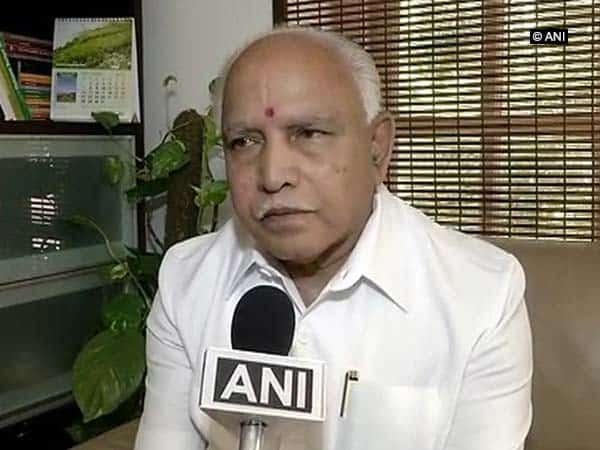In 1996, soon after LK Advani resigned as an MP over his name surfacing in the hawala diaries, we asked the original BJP ideological mascot why he had taken what many believed was an extreme step. ‘It is a conscience call. I come from a party with a difference which is committed to probity in public life,” he claimed. The notion of the BJP being a party with a difference stuck: that very year when Atal Bihari Vajpayee’s government fell in 13 days, a section of the BJP took pride in the moment being a reflection of their uniqueness as a party that wasn’t power-hungry in sharp contrast to the ancient regime of the Congress. Now, the wheelings and dealings in Karnataka in 2018 have ensured that the mask has finally fallen: the moral high ground has slipped under the quicksand of individual ambitions and the arrogance of electoral invincibility.
The BJP’s distinctiveness was based on the twin pillars of ideology and idealism: while the ideology of Hindu nationalism was its USP in a cluttered political marketplace, there was a value-based politics which the party claimed to derive from the puritanical worldview of the RSS. As Advani’s resignation over the hawala diaries showed, this was still a party where a measure of political idealism coexisted with ideological rigidity. The majoritarian ideology gave the BJP its core supporter who wanted to see India as a Hindu rashtra; the virtuous nature of its leadership brought in the crucial plus vote of those who were tiring of the Congress’s dubious tryst with corruption and dynasty. It is that incremental vote which propelled Vajpayee to become the country’s first non-Congress prime minister to serve a five-year term and even more crucially enabled Narendra Modi to lead a BJP -majority government in 2014.
But where the Vajpayee-Advani era claimed to revolve around a more wholesome and inclusive notion of a political raj-dharma or governance as duty, the Modi-Amit Shah period has seen an unapologetic adherence to Chanakya-neeti, an aphorism that focuses solely on ends irrespective of the means to acquire power. Where a Mr Vajpayee, for example, would readily cede space to his coalition partners, a Mr Modi is clear that this is a BJP-first government in which the allies are mere appendages. Where an Advani would take refuge in the party’s ideological isolation in the mid-1990s, a Shah is determined to expand the BJP’s footprint from Kashmir to Kerala with an unmistakable ruthlessness, treating political opponents are enemies and not adversaries. In the process, the BJP has been transformed from being just another political party aspiring for power into the most dominant and formidable election machineof post-Independence India.
As a consequence, while its primary commitment to the Hindutva ideology is seemingly intact – despite compromises made while stitching up unholy alliances like with the PDP in Jammu and Kashmir – the BJP’s idealism is now negotiable on the high table of power. This is exactly what has happened in Karnataka (and earlier in Goa and Manipur): the push for a Congress-mukt Bharat has led the BJP to imitate the very Congress practices it once so abhorred. A frequent explanation the BJP has provided in the last week to justify its drive to capture power in Karnataka is to point to the Congress’s appalling track record in misusing the Raj Bhavans and subverting democratic institutions: after all, long before Vajubhai Vala, there have been the likes of Ram Lal and many other governors who acted as political agents of the Congress elite. But surely any attempt to draw a moral and political equivalence with the Congress’s historical failings leaves the BJP open to the charge that it is no longer a party with a difference.
In 2014, Modi was cheered when he stood up on the ramparts of Red Fort and promised the nation, na khaoonga, na khane doonga; in 2018, after an acrimonious Karnataka campaign which saw the likes of the controversial Reddy brothers take centre stage, and a post-election super-over that has seen frantic attempts to cobble together a majority by inducing MLAs to switch sides through money and muscle power, the moral halo has dissipated. Modi is still India’s neta number one but his credibility as a crusader against corruption who will transform the country’s venal political culture has been scarred.
Post-script: In the aftermath of Karnataka’s 58-hour BJP chief minister BS Yeddyurappa’s resignation, there have been attempts to liken his sacrifice to that of Vajpayee in 1996. Truth is, where Vajpayee resigned as a first resort, for Yeddyurappa it was a last resort after all efforts to get the Congress-JD (S) MLAs to leave their luxurious resorts failed. As the viral Whatsapp joke goes: In the good old days, it was said, politics is the last resort of the scoundrel; now, resort is the last politics of scoundrels!
Courtesy: hindustan times
https://www.hindustantimes.com/columns/the-bjp-s-halo-seems-to-have-dissipated/story-ZAXzh856CibEugbmvX7bnM.html

